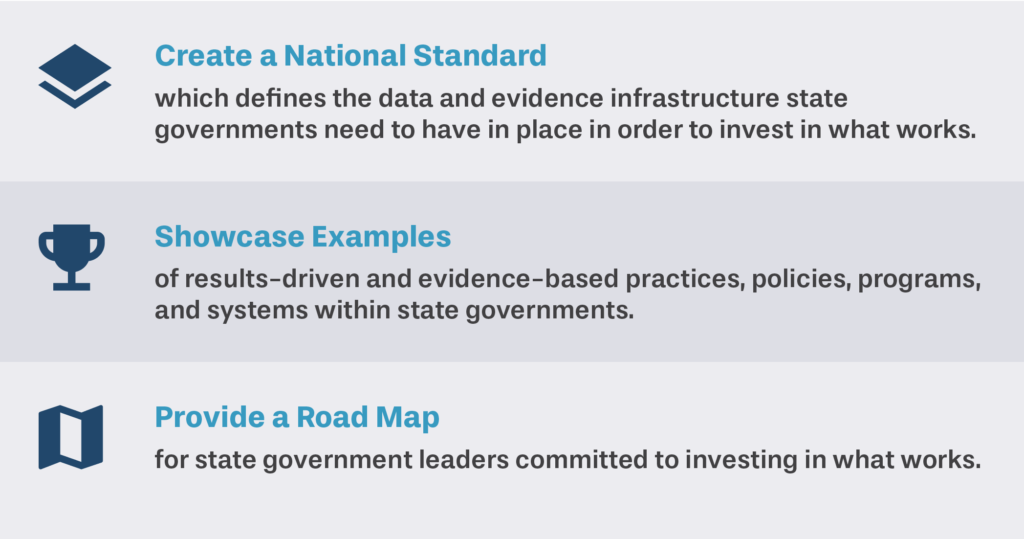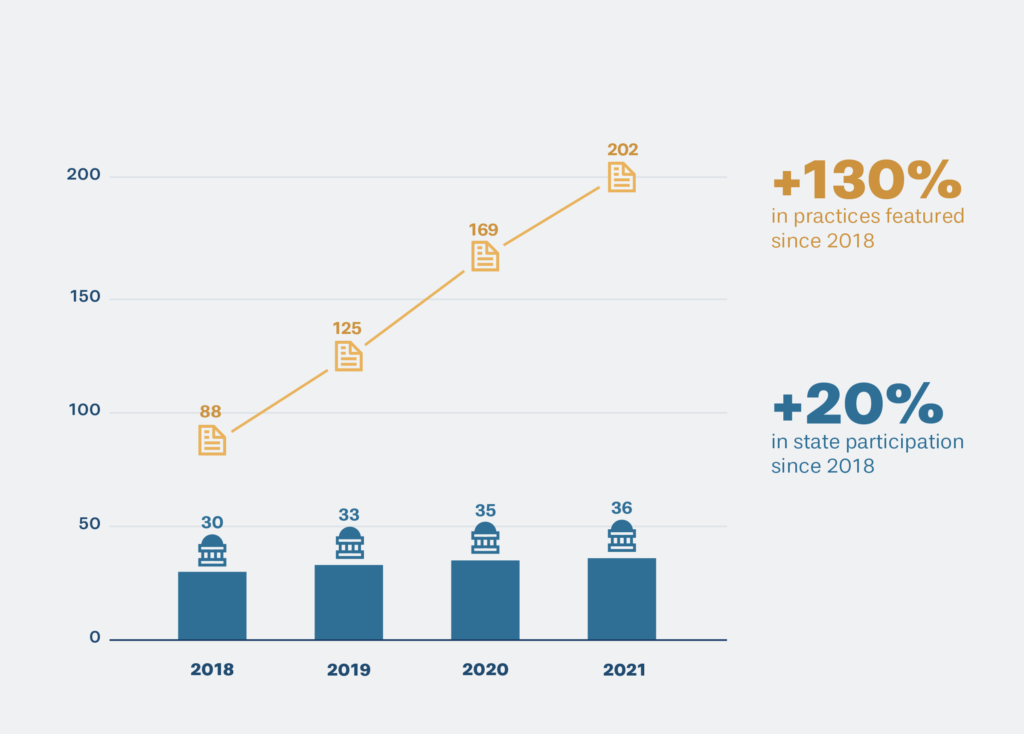Introduction
Since the start of the COVID-19 pandemic, state government leaders have faced immense challenges, from managing a rapidly evolving public health crisis to investing in an equitable economic recovery. In 2021, the Invest in What Works State Standard of Excellence captures state governments’ use of data and evidence to build the capacity to make better decisions.
The Invest in What Works State Standard of Excellence (State Standard of Excellence) sets a national standard – a “north star” – for how state governments can consistently and effectively use evidence and data in budget, policy, and management decisions to achieve better, more equitable outcomes for their residents.

In 2021, Results for America identified eight states that are leading the way with their use of data-driven and evidence-based practices, policies, programs, and systems. These Leading States include: Colorado, Minnesota, North Carolina, Ohio, Oregon, Tennessee, Utah, and Washington.1
In 2021, Results for America recognized four Honor Roll states: Massachusetts, New Jersey, Pennsylvania, and Rhode Island, all of which have demonstrated an increasing commitment to evidence-based policymaking.
In the 2021 State Standard of Excellence, Results for America identified 202 examples of data-driven and evidence-based practices, policies, programs, and systems in effect as of August 2021 in 36 states across the country.2 This represents a 20% increase from the 169 examples in 2020.

The State Standard of Excellence sets the national standard for the capacities and infrastructure needed to build a state’s capacity to implement the evidence-based and equity-driven policies, practices, and systems to help deliver better, more equitable results for residents.
The State Standard of Excellence highlights the strides state governments have made to:
- Embed equity in setting of strategic goals and outcomes, led by the the governor and executive branch
- Collect, use, and report disaggregated data, evidence, and results to deepen understanding impacts of policies, programs, and processes
- Build inclusive processes that provide meaningful decision-making opportunities for communities and stakeholder groups when decisions are being made that affect them
- Analyze impact of budget, policy, and management decisions through an equity lens to achieve more equitable outcomes and results for residents
Results for America analyzed practices from across the country. They demonstrate that states are using data and evidence to achieve more equitable outcomes for residents and communities amid the COVID-19 pandemic and invest in what works through evidence-based budgeting and grantmaking.
1 Ohio and North Carolina were identified as honor roll states in the 2020 State Standard of Excellence, and because of their ongoing commitment to and expansion of data-driven and evidence-based policy, have merited designation as Leading States.
2 Of the 202 examples, 50 practices were newly implemented between August 2020 and August 2021; 11 practices were in existence but not included by Results for America in previous State Standards of Excellence; and 141 were included in the 2020 State Standard of Excellence.
Invest in What Works State Standard of Excellence Background
Results for America developed the 2021 Invest in What Works State Standard of Excellence between August 2020 and August 2021. Results for America gave the state governments featured in the 2021 State Standard of Excellence an opportunity to review and comment on the content and presentation of the information related to their examples. Results for America recognizes the complexity of putting state government practices, policies, and programs into a multi-state Standard of Excellence, and as such, Results for America exercised its best judgment and relied on the deep expertise of leaders both within and outside of the state government during the development of the State Standard of Excellence.
Results for America acknowledges that there are likely additional state government practices and policies that were not identified or communicated to Results for America and, thus, are not included in the 2021 State Standard of Excellence. Results for America plans to continue publishing updated versions of the State Standard of Excellence to illustrate how states are progressing in their use of evidence and data to improve outcomes for residents and increase racial equity.
Research Sources
Results for America’s analysis is based on data provided under license by The Pew Charitable Trusts’ Results First initiative (which was used to inform its 2017 report on states’ engagement in evidence-based policymaking) and input from more than 150 current and former state government officials and other experts. The views expressed herein are those of Results for America and do not necessarily reflect the views of The Pew Charitable Trusts or the John D. and Catherine T. MacArthur Foundation. All hyperlinks to the World Wide Web in this report were operational at the time of publication; however, URLs may change over time. Results for America regrets any inconvenience to readers; links will be updated in future editions.
Methodology
Results for America classified state governments’ data-driven and evidence-based practices, policies, programs, and systems as “leading” or “promising” examples based on: (1) whether the effort met the minimum threshold described below and (2) the extent to which it demonstrated five characteristics: results, breadth, depth, legal framework, and interconnectedness.
In order to meet the minimum threshold for inclusion as leading or promising, the example must:
- Meet the requirements of the criteria question
- Be in effect in August 2021
- Be verifiable with publicly available information
Results refers to the demonstrated impact of the practice, policy, program, or system in terms of results achieved, dollars saved, and/or lives improved.
Breadth refers to whether the example is in effect:
- Across the state government
- Across multiple state agencies
- Across an entire state agency
- Across multiple programs within a state agency
- Within one program within a state agency
Depth refers to the extent to which the practice, policy, program, or system is exemplary in all aspects of the criteria.
Legal Framework refers to whether the practice, policy, program, or system is mandated by law, an executive order, or another formal rule-making mechanism.
Interconnectedness refers to the extent to which the practice, policy, program, or system directly informs budget, policy, and/or management decisions.
Equity refers to how the practice, policy, program, or system is advancing equitable outcomes for residents or is supporting equitable government practices, policies, programs, or systems.
